|
||
|
June
2011 (Volume
61 - Issue 6) |
|
Our
objective: To increase awareness,
interest, and involvement in Section activities and |
| 10 - Sustaining Members | ||
| 17 - Unemployed Member Dues | ||
| 6 - Voice Of The Custmer | 12 - ASQ News | 18 - Feedback/Advertising Rates |
1.
Next
Event
**GOLF
TOURNAMENT**
Date: Friday, July 8, 2011
Time: Day and Evening Place: Base de Roc 2870, Base de Roc Joliette, Quebec J6E 3Z1 The ASQ Quebec
sections,
Montreal 401 and Montréal francophone 404, invite you to
its yearly golf tournament on Friday,
July 8, 2011.
Do not wait: register yourself alone or with one or two colleagues/friends, and be paired up with other quality professionals or create your own foursome. After playing golf, join everyone on the deck for a drink in a relaxing and enjoyable environment. Continue the evening with a delicious dinner and discussions around the table, and be there for the prize ceremony! Please note that you can also come only for golf or only for dinner. Commandites disponibles / Sponsorship opportunities Marcel Charbonneau (514) 333-1770 marcel_charbonneau@videotron.ca Sukhvinder Jutla (514) 626-5091 Sukhvinder.Jutla@pwc.ca Golf Registration Form (Word) Golf Registration Form (PDF) |
2.
Ad
/
Publicité
|
||||||||||||||||||||
3.
The
Editor's Corner
Early this month, the city of Dorval (a suburb of Montreal where Pierre Trudeau International Airport is located) had to enact an interdiction on using tap water. This ban was in effect for approximately 3 days and resulted in city residents, airline passengers and workers at the airport to use and drink only bottled water. The reason for this was that a private construction worker working at the airport accidentally flushed approximately 200,000 gallons of stagnant water into the wrong pipe at the airport, thus contaminating the city’s water supply. Reading about this and how the incident was deemed an “accident” made me think of the 8-step cause & corrective action form I use at my company. In the sections for defining the root cause of escape and the root cause of problem, the following statement appears: “Operator / human error not acceptable”. Deeming this occurrence an “accident” mainly implies that the private construction worker had been trained in how to properly dispose of the dirty water, and just made an honest mistake. This may be true, but the fact that it did happen shows that the process is not airtight; that even with proper training and procedures, sometimes things go awry. A simple poka-yoke solution could work in this circumstance. The other extreme would be that the worker had not been trained, and was unaware of the proper disposal procedures. Not only would this be a giant lapse in the training process, but as well as a reckless disregard for the environment and the well-being of the citizens of Dorval. As anyone who has had food poisoning will tell you, spending most of one’s day in a bathroom is not much fun. So even though the quick explanation for the news media is that “it was an accident”, we know quite well as Quality professionals that it does not end there. We must start asking “Why?”, and asking that enough times will lead you to your true cause(s). ******************************************************************************************** In this month's Newsletter, we begin a new section cleverly titled "The Interview Corner". It consists of (surprise!) an interview with a Quality professional. This month we have Mr. Khaled Khattab, who was interviewed on the subject of striving for excellence and world class performance. Look for more interviews in upcoming Newsletters. |
|||||||||||||||||||||
4.
A Word
from
your Section Chair
We had a great season in 2010-2011, and we will begin this new year on a great note with the Quality Golf Tournament on July 8. Please, join us for this great event that rings together quality professionals from the Greater Montreal Area. I want to congratulate all 2011-2012 elected executives form both 401 and 404 Sections in Montreal. Our Section Executive will be mostly feminine in 2010-211 with Hong Ping (Holly) Zhao as Secretary, Mitchell Daudier as Treasurer and myself as Chair. We will be counting on William (Bill) Wilson as Vice-Chair. We are supported by a very dynamic group of 18 volunteers. If you want to help us in anyway, please contact me or any other Leadership team members. You can easily find us at our monthly events and at the Golf Tournament next month. |
|||||||||||||||||||||
5.
Had
You Come
to the
Last Event
By
Raymond
E. Dyer
- ASQ
CMQ/OE &
CQA, Voice of the Customer Chairfor Eric Stern, ASQ Senior Member, CQA, Publicity co-chair 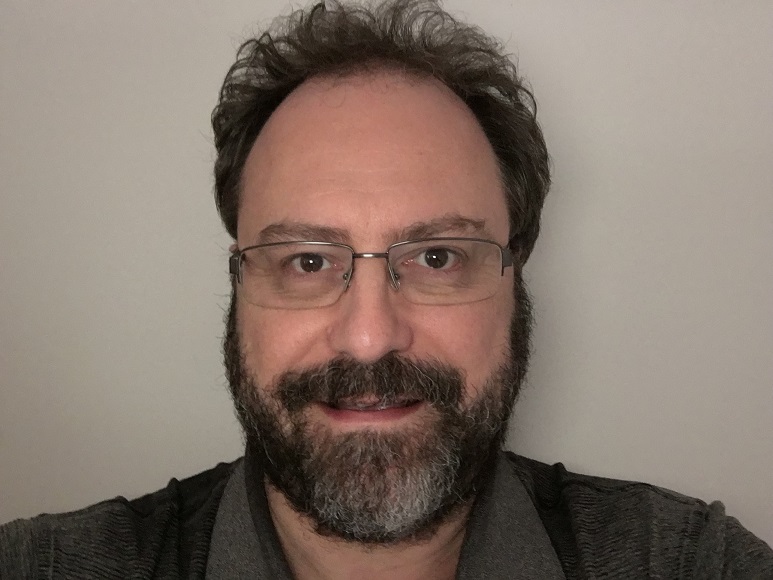 Had you come ... Use of Statistical
Intrevals to Enhance
Quality/Business Decision Making
Eric
Stern had to miss
our last event, so I'll do my best to share some of my take-aways from
it.
To start with, I'd like you all to know that our speaker, François Pageau, has often presented to our membership and for this we thank him. Furthermore, François has now also accepted to be part of our 2011/2012 Leadership Team as Program Committee Member, so please join us in welcoming him aboard the team. Now for the summary on "The Use of Statistical Intervals to Enhance Quality/Business Decision Making" event. François spent some time talking about the difference between an "Enumerative study" and an "Analytic study". Wikipedia defines an Enumerative study as a statistical study in which action will be taken on the material in the frame being studied, whereas an Analytic study is a statistical study in which action will be taken on the process or cause-system that produced the frame being studied; the aim being to improve practice in the future. So the former defines something you have (e.g. like if you should accept a lot of product), whereas the latter helps you predict what will happen in the future if the process is repeated under the same conditions. At one point, François sat down and started showing us how to use Minitab 16 to provide some statistical information and simulations. He indicated that SAS was also a very good tool but usually somewhat more expensive. This hands-on practical demonstration proved very interesting, especially for those with some experience with the tool. François also talked about the kinds of tests we can apply, e.g. Student-t test to determine if 2 sample means are the same and the chi-square test to determine the confidence interval for a difference of means. He then later generated a bunch of samples, 100 to be exact, from his Minitab application & showed us that, if using a 95% confidence level, around 5% (in this case I recall it was 6 out of 100) of the sample intervals or ranges of variances around a mean or average would fall out of the observed mean and variance interval. He also showed the effect on the interval or range when one increases the level of confidence required, i.e. it gets very much larger. When reviewing this impact, I could not help but remember an example I was presented (when much younger) as to why a shorter interval with a lower confidence level might be preferable to a higher confidence level but a larger interval. Say you wanted to build and sell beds. Using a sample of the population to estimate the size of bed that would meet 95% of the population's length would likely be better than trying to go for 99% by making the bed so long that the extra cost per bed would far outweigh the extra sales you could get. In other words, there is always a risk in using statistics but if you don't risk a little, the range of information you will get will be so large as to make it much less workable. Francois then spoke of Tolerance Intervals and Prediction Intervals. Naturally, you would want the latter to fit inside the former. The former is the interval you can work with whereas the latter is a reflection of what you can expect. Lastly, François mentioned a quote from George E. P. Box that states "Essentially, all models are wrong, but some are useful". Most seemed to have enjoyed that tidbit of wisdom, as well as the hands-on session we had just experienced. Thank-you François! Eric Stern, CQA, senior member, publicity co-chair, developmental coach and consultant at Expertech CMSC, expressing his own opinions. ericst@iseffective.com For
networking with local
quality professionals explore these groups: http://tech.groups.yahoo.com/group/Quality_Montreal/ http://www.linkedin.com/groups?gid=90170
******************************************************************************************* On April 20, 2011 during our General Assembly meeting, we recognized some of our leadership team members for their commitment and outstanding contributions for enhancing Quality goals and objectives of our section and the community. Khaled Khattab, the Award Chair, Jean-Pierre Amiel the past Award Chair and Chantale Simard our Section Chair handed over the recognitions (see pictures attached). The recognized people were: Chantale
Simard
Eric Stern Gordon Ayotte Raymond Dyer We take this opportunity to thank all our leadership team members for their dedication and hard work over the past years. |
|||||||||||||||||||||
6. Voice of the Customer
Survey said OK, so I won't summarize the results of the whole membership survey in one long article, but rather I'll give you bits and pieces of interest in various newsletter articles. First, 56 out of 302 members started the survey online: that's pretty good. However, for some reason, only 36 were registered as having completed it. It could be that those 20 individuals simply stopped and did not complete it, but I do know there were technical issues as well. There were three additional members that indicated they had not received the survey and a fourth indicated he tried several times to complete it but his entries kept clearing on him. I also know that, during my initial tests, one of my two e-mail accounts (my yahoo.com one) treated the survey as SPAM. Given all of this, let me start by apologizing for the technical difficulties. I'll keep playing with the tool and will try to work out the bugs with ASQ & Qualtrics. Of the 36 plus 3 that did reply (the 4 that got back to me regarding issues were sent a Word version of the survey and 3 returned it filled), some very interesting information was obtained. The Leadership Team used the information related to events in our planning of our 2011/2012 Program of Events. I haven't had the chance to summarize the rest of the feedback, but let me share the one feedback all surveyors look at first, i.e. "Overall, how satisfied are you with your membership in ASQ Montreal Section 0401?". Of the 32 members that answered that question: none said "Not at all", none said "Not very", 1 said "Somewhat", 10 said "Mostly", 19 said "Very", 2 said "Don't know", and none said "No comment". Now we agreed before we set out on this survey to measure our member satisfaction as (0.25 x # of “Not very” + 0.5 x # of “Somewhat” + 0.75 x # of “Mostly” + # of “Very”) divided by (# of responses - # of “Don’t know” - # of “No comment”). That would make it (0.25 x 0 + 0.5 x 1 + 0.75 x 10 + 19)/(32-2) = 90.0%. We also agreed to measure our member level of interest as (# of responses to “Satisfaction” question - # of “Don’t know” - # of “No comment”) divided by (# of responses to “Satisfaction” question). That would make it (32 – 2 – 0)/(32) = 93.8%. Well that's a pretty good starting point. Naturally, being "Quality" type individuals, our intent/plan/desire is to improve on that. We'll take your feedback, do the best we can, and ask you again, maybe with an even shorter survey, how we've done. Meanwhile, thanks again to those of you that responded and please don't wait for a survey to give us your feedback! 7.
The Interview Corner
By
Kostya
PolinkevychStriving for Excellence
and World Class Performance: an interview with Khaled Khattab.
Improvement of business relationships/performance and customer service is a critical factor of success in our competitive world. Many companies and organizations are extremely interested in achieving the best possible results in that field. But many of them still struggle finding optimal ways in achieving their goals in terms of time, cost, quality and overall organizational performance. How to evaluate or measure the levels of performance? How to define the highest level of performance and how can we recognize it? To answer some of these questions, we interviewed Mr. Khaled Khattab who is a well known specialist in Business Excellence, and has vast experience in the implementation of the most successful performance improvement programs. 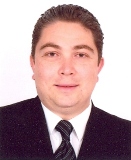 Kostya: As an expert in Business Excellence, could you please give our readers an idea about World Class Performance? Khaled: I believe World Class is a very elastic term and it has been widely used by lots of organizations worldwide. We do not even know how to define World Class performance. That is why different frameworks for Business Excellence were put into place worldwide. In Canada, there is a framework (Framework for Organizational Excellence) which was developed by the National Quality Institute (NQI) in Toronto, and there is one in Quebec developed by Le Mouvement Québécois de la Qualité (MQQ). The most famous one is the Malcolm Baldrige framework in the USA, as well as the European one developed by the European Foundation for Quality Management (EFQM). All of them were created to help organizations, regardless of their size, nature of business, public or private, to achieve World Class Performance. Kostya: Could you please give us more details about one of these models? Khaled: There are no significant differences between the frameworks I mentioned earlier. All of them share the same fundamental concepts of Excellence and they have the same objective: to help any organization achieve World Class performance by satisfying all its stakeholders in a balanced way, which is never an easy task. If an organization takes any framework and manages itself by its criteria, it will definitely move bit-by-bit from good performance to great, from great to excellent and ultimately from excellent to world class performance. This is what we call the World Class Journey, because it takes time, dedication, and leadership commitment. It requires a constant vision by the organization’s leadership to use the criteria of the framework. The beauty of these frameworks is that they could give us qualitative and quantitative outputs. What I mean is that usually to judge whether an organization is a World Class performer or not, it has to go through an assessment. By going through this assessment, we have two good outputs – we have the qualitative, with which the organization determines its strength points and its areas for improvement. The second type of output is the quantitative one, which is in a form of a score, because if we can’t measure where we stand we won’t be able to improve. These frameworks are used as a diagnostic tool; very powerful and very beneficial to help an organization in order to know where it stands, and then improve. Kostya: Could you please elaborate as to how these frameworks are beneficial? Khaled: If we look at the EFQM framework, we will see that it is divided into two parts: Enablers and Results. Under the Enablers there are criteria for Leadership, People Management, Strategy Management and Formulation, Partnerships, and Processes, Product and Services of the organization. Under the Results there are criteria for people, customers, society and key performance. If a company is doing well in managing its enablers, then theoretically speaking, it should get good, excellent and, ultimately, World Class results. How the model functions and how it is used, and the benefits of the continuous assessment is what helps the organizations move forward. The most important thing is the assessment. It is very comprehensive and very systematic. Definitely, it is not an audit, as it stays at the macro-strategic level of the organization. The output of the assessment never tells an organization WHAT it should do, but focuses on where it has to improve. It is only an eye-opener or a "temperature check". Kostya: What concepts are these models built on? Khaled: All the models or frameworks I talked about at the beginning are built on the Fundamental Concepts of Excellence. These concepts of excellence are achieving balanced results, adding value for customers, leading with vision, inspiration and integrity, managing by processes, succeeding through people, nurturing creativity and innovation, building partnerships, and taking the responsibility for the sustainable future. Kostya: How does this model account for the human factor? Khaled: As an example on the Enablers side of the EFQM framework we would find, the People Management criteria. It focuses on how people resources are planned, managed and improved, how human resource policies, strategies, and plans are developed, how the company is involving its employees in developing HR policies, strategies and plans, how the company is using people satisfaction surveys and other forms of employee feedback to improve HR policies and strategies. In addition, how the company is identifying, classifying, and matching people knowledge and competencies with its needs, how the company is developing people through work experience, how the company is reviewing and updating individual and team objectives. Kostya: How are the improvements measured? Khaled: The model functions through an assessment tool, which is called RADAR. It looks for information regarding: R - Results, A - Approach, D - Deployment, A - Assessment and R - Review. When we make an assessment, the first thing we look for is the first R - results. We want to know what kind of results the company achieved. When we look at Enablers, we do not look just at how the company is managing its people, dealing with the customers, managing processes, for example: we want to know what kind of approaches exist in the organization, how are those approaches are deployed, and how those approaches after deployment are assessed to make sure that they are deployed in the right way, and how they are reviewed for future improvement. While doing the assessment, we definitely check the improvements. If it is the first assessment, usually it is not that easy, because during the first assessment all we can collect is baseline data. If we make the assessment on a regular basis, we can compare the improvements. Usually when an organization embarks on its World Class Journey, it does not use the model one time; it is a long term journey that requires the vision and, maybe, 10 or 20 assessments until the company keeps improving. Every time the company goes to an assessment, it will discover new areas for improvement and so forth. Kostya: Can you give us an example of a successful implementation of this model? Khaled: I have been personally involved with benchmarking since the mid-nineties. The organization that chooses to be on a World Class journey has to continuously benchmark its activities, its performances, its improvements, its objectives, its processes with other organizations, preferably the best in class. What I was focused on mainly over the past seven years was benchmarking with the companies that have used this model. I took groups on benchmarking expeditions to European organizations like BMW, TNT, Philips and Siemens which have been using the model for years. We have witnessed a variety of best practices, different excellence strategies and the companies on different stages of the Journey to Excellence. One of the companies that really impressed me is TNT, which focuses a lot on its people culture. I visited this company in Germany, the Netherlands, and in the UK, and all of them had what we can call the same Excellence DNA. Every year in the European Excellence Award, we find TNT offices receiving the award. Kostya: Thank you very much Khaled for your experience and knowledge about Excellence Frameworks and the information you shared with our readers today. Khaled: Any time. I hope I helped your readers to understand the benefits of EFQM and the Journey to World Class. ************************************************************************** Khaled is a Certified Assessor for the European Foundation for Quality Management (EFQM) Excellence Model, a Certified Auditor for QMS ISO 9001 and EMS ISO 14001. He is a Senior member of the American Society for Quality (ASQ) and a member of the Canadian Public Sector Quality Association. He is a Research Assistant at HEC Montreal focusing on Innovation management, TQM and Business Excellence. Khaled is also the Founder and President of Benchmarking For Excellence. As a reminder: if any readers would like to obtain additional information, please provide us your feedback (internet@asqmontreal.qc.ca), or contact Khaled Khattab (514) 654-4474 or khaledkhattab@yahoo.com. 8.
2011-12 Planned Events
Date,
time,
and location
will be confirmed as we progress into the year. Most events
are planned for Wednesday evenings and are held at the Sheraton Montreal Airport Hotel.
Watch
the Newsletter and our web site for further details.
Date Event TBD TBD |
|||||||||||||||||||||
|
Proposed 2011-12 Program Audit Techniques (Show and Tell) Quality in the Service Industry What Makes People Perform? Importance of Cultural Settings for Continuous Improvement in Quality (Panel Discussion) Supply Chain Quality How Large Companies Deal with Quality Issues Root Cause Analysis Statistical
Tools/SPC Continuous Improvement Risk Management/Lessons Learnt from B.P./Japan/Toyota Decision Making Processes PFMEA |
|||||||||||||||||||||
9.
Welcome
to our New Members
May
2011 |
|||||||||||||||||||||
10.
Sustaining
Members
ASQ Montreal Section thanks our Sustaining Members: |
|||||||||||||||||||||
11. Other
ASQ
Events
|
|||||||||||||||||||||
12. ASQ NewsSay
Cheese! World Conference Photos Now Available ASQ Weekly Preview:
Employee Engagement Caught
on Tape: ASQ Members Build Bikes for Children How
You Can Help the Missouri Tornado Victims |
|||||||||||||||||||||
13.
ASQ
Montreal Section Education Program 2010-2011
By
David
Tozer,
Ph.D., ASQ CQE and SSBB, Education & Audit Chair Having ASQ certification gives you an edge in the market and can significantly increase your income. ASQ Certification often leads to higher paying employment. The money invested in education and certification increases chances of finding employment quickly in the down sizing environment we live in. People who take the section sponsored refresher courses, and spend at least twice as much time as spent in the classroom on self study, have an 80%, or better, chance of passing the examination on the first attempt. Certified Quality Engineer Topics include: quality concepts, cost of quality, human resources, team formation and group dynamics, inspection, metrology, sampling, reliability, quality standards, quality audit, statistics, design of experiments, process improvement, liability, and modern management methods for improving quality. Certified Six Sigma Black Belt Topics include: quality concepts, cost of quality, enterprise wide deployment, business process management, project management, team formation and group dynamics, define, measure, analyze, improve, control, lean enterprise, statistics, design of experiments, and design for six sigma. Certified Six Sigma Green Belt Topics include: quality concepts, cost of quality, enterprise wide deployment, business process management, project management, team formation and group dynamics, define, measure, analyze, improve, control, and statistics. Certified Manager of Quality/Organizational Excellence Topics include: quality concepts, quality planning, customer focus, quality standards, project management, cost of quality, team formation and group dynamics, human resources and improvement.
Certified
Quality Auditor Topics
include: quality concepts,
team
formation and group dynamics, management responsibility, audit
objectives, audit preparation, audit conduct, audit reporting,
sampling, and basic statistics.
Certified Quality Inspector Topics include: quality concepts, team formation and group dynamics, geometry, metrology, reading drawings, mechanical processes, statistical process control, inspection, and sampling. Calendar and Registration Form Questions?
In house
courses, etc.: David Tozer:
(514) 694-2830,
|
|||||||||||||||||||||
14.
Executive
Committee Meetings & Officers
Section Executive
Committee
(Leadership Team) Meetings are held at different locations, starting at
6 PM. The next regular meeting is tentatively scheduled for : September
7, 2011 Consult the List of Your Executive
for
2010-2011 here |
|||||||||||||||||||||
15.
ASQ
Certification & Recertification
Please
visit www.asqmontreal.qc.ca/Certification/Exmdates.html
for exams dates. 16. Upgrade Your Membership to Senior MemberGAIN RECOGNITION . . . ADVANCE TO SENIOR MEMBER
Why not demonstrate your professional growth and accomplishments in the quality profession by becoming an ASQ Senior Member. You will receive recognition from ASQ, additional benefits, and the opportunity of being nominated to the grade of Fellow Member, if you qualify. Go onto your profile at www.asq.org to complete the application on-line. You can also download the application from www.asq.org. Or you may phone 1-800-248-1946 and request that an application be mailed to you. Apply today either by phone or on-line and get the recognition and benefits you deserve.
17.
Unemployed Member Dues
Unemployed ASQ members receive a discount on their membership dues based on consecutive years of membership.
Eligibility Criteria
Benefits
NOTE: The following links require that you be logged into your account before you try to activate them. Download the 2010/2011 Unemployment
Program
Application (July 2010–June 2011 Membership Groups) (PDF, 78 KB) |
|||||||||||||||||||||
18.
Feedback
Please send us your comments about the ASQ Montreal Section 0401 E-Newsletter (topics, layout, length, etc.). Do you want to contribute an article (English or French) or a good idea? Contact us by e-mail. |
|
||||||||||||||||||||
Pass
it on
We invite you to forward this Newsletter to friends and colleagues who may be interested. |
|||||||||||||||||||||
|
The
ASQ
Montreal
Section 0401 Newsletter is prepared by and published for its members. How to
Opt Out. This
e-mail
is being sent in the course of normal Montreal Section
business
to the e-mail address of record. We are not responsible for forwarded
e-mails. If you no longer wish to receive e-mail communications from
the Montreal Section (your section) of ASQ, please visit your ASQ
account to unsubscribe or
reply to this message, indicating Opt
Out in the
e-mail body
and in the title. |
|||||||||||||||||||||

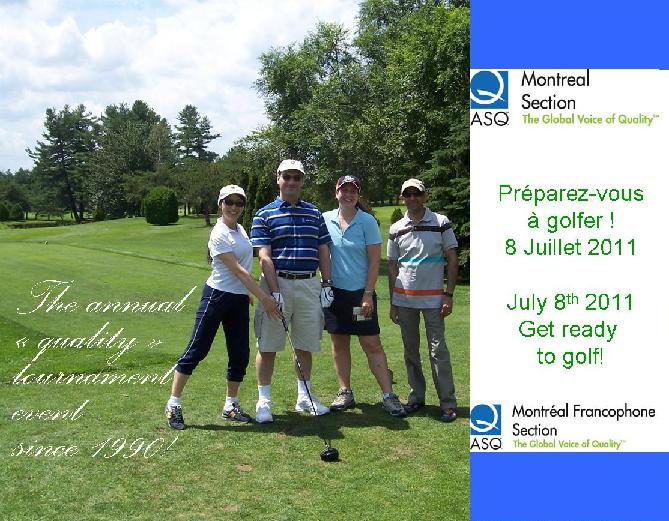
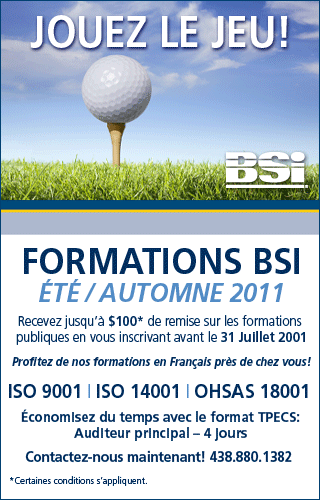
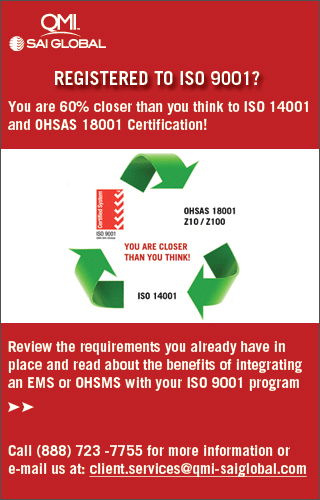
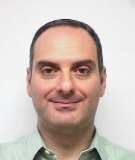
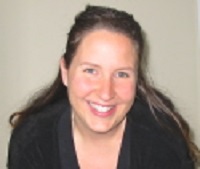
 By
Sukhvinder S. Jutla,
2010-11 Program
Chair
By
Sukhvinder S. Jutla,
2010-11 Program
Chair